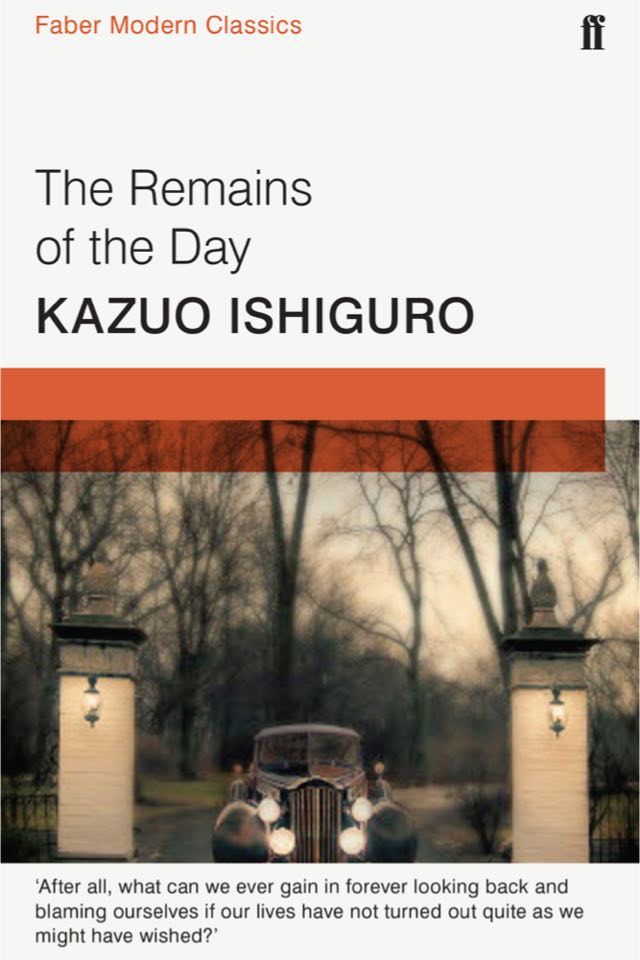The Remains of the Day
— Ilana Masad
[The following review was inspired by a class discussion I attended; writers who contributed to the following read are David Henson and Claire Jimenez, both doctoral students at the University of Nebraska-Lincoln.]
Back when The Buried Giant was published, I went to see Kazuo Ishiguro read at the 92nd Street Y in New York City. He had a commanding presence and his reading was slow and deliberate and beautiful. His accent was so extremely British that I was surprised—I knew he’d moved to England from Japan as a youth, and had been expecting some vestiges of a different kind of accent. Reading his book The Remains of the Day recently, I realized that he’d long ago learned Britishisms, or more specifically, Englishisms, to an intensely precise degree.
The Remains of the Day is a strange book, and a brilliant one too. It’s not quite a satire, but it is definitely a multilayered critique, while also being an entirely sincere and sad book about an aging butler in 1956. Narrated by the butler, Mr. Stevens, the novel is set during a six-day road trip he takes to see a housekeeper who once worked at Darlington Hall, the grand house Mr. Stevens still occupies. Although using this trip as the momentum that moves readers physically forward, it’s in Mr. Stevens’s memories that the true plot of the novel lies.
It is sometimes said that butlers only truly exist in England. Other countries, whatever title is actually used, have only manservants. I tend to believe this is true. Continentals are unable to be butlers because they are as a breed incapable of the emotional restraint which only the English race are capable of.
Mr. Stevens, in extended flashback scenes that are woven seamlessly into his narration, examines what it really means to be a butler, what it means to serve. His dedication to service may seem alarming at times, for he never outwardly questions any of the choices his employer makes. What we see of Mr. Stevens is only his façade of professionalism, though, and so we can’t know, ultimately, what his true thoughts and desires and opinions are. He is of the opinion that the only time a butler can be a person of his own, without the professional demeanor, is when he is entirely alone; and since we are reading a book narrated by him, we are implicated as his audience, as being present with him, and so he remains largely professional and private in this first-person narration, hiding from us even moments when he is crying or angry or hurt.

Over the course of the novel, we discover more and more disconcerting things about Mr. Stevens’s employer, whom he values and admires and defends from what he sees as slanderous comments. In this way, the novel appears to be a grand metaphor for colonialism, for the way the British swept into many countries and were sometimes even welcomed with open arms. The double-consciousness of the colonized mind, the dividedness, is apparent in Mr. Stevens and his need to defend the household he has occupied for much of his professional life. If he were to criticize it, he would implicate himself and his dedication to it—and so it is a slow and difficult process through which he begins to admit the faults and flaws of his employer.
Whether you read the book through the anticolonial lens or not, however, the fact remains that Mr. Stevens is a tragic and flawed character whose kind is disappearing from the world; England in 1956 was changing rapidly from its pre-World War II ways, and large, permanent household staffs are less frequently seen. Ishiguro manages to both criticize the Englishness of the great house traditions and to send them a love letter of sorts at the same time. He is a master of multilayered work, and this is certainly one of his finest.